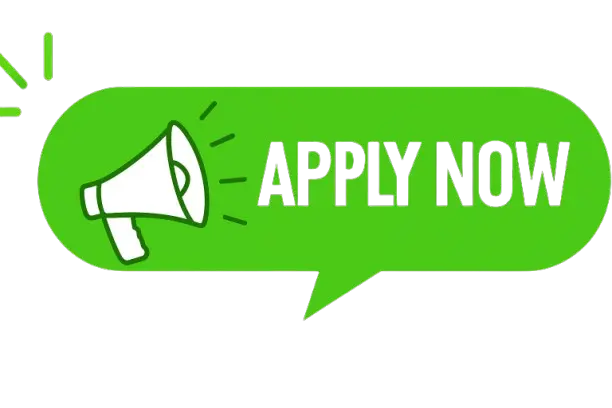Pursue Study in Switzerland offers top-ranked public universities like ETH Zurich and University of Geneva and EPFL with tuition fees from CHF 1,000–4,000/year. Popular programs include Engineering, Business, Hospitality, and Life Sciences. IELTS 6.0 or Medium of Instruction (MOI) is accepted. Students can work up to 15 hours/week. A bank statement of CHF 21,000 is required for the visa. However the top scholarships such as university-specific grants, and research-based fellowships also make studying in Switzerland financially accessible. When it comes to living expenses, it ranges from CHF 1,200–1,800/month. Graduates receive a 12-month post-study job search visa. Apply 4–8 months before intake for admission and visa approval.
Quick Facts To Study in Switzerland 2025–26
| Languages | English, German, French, Italian |
| Top Cities | Zurich, Geneva, Lausanne, Bern, Basel |
| Degree Duration | Bachelor: 3 yrs, Master: 1–2 yrs, PhD: 3–5 yrs |
| Eligibility | 60% academics, transcripts, recommendation letters |
| Tuition Fees | CHF 1,000 – CHF 4,000/year (affordable public rates) |
| Living Costs | CHF 1,200 – CHF 1,800/month |
| Work Rights | 15 hrs/week during term, full-time on holidays |
| Post-Study Visa | 12-month job search permit |
| Visa Approval Rate | 85% |
| Block Account | Proof of ~CHF 21,000 (bank statement or sponsor) |
| English Requirement | IELTS 6.0 / TOEFL / MOI accepted |
| Top Scholarships | Swiss Government Excellence, university-specific |
| Top Universities | ETH Zurich, EPFL, University of Geneva, UNIL |
| Popular Intakes | September (main), Feb (limited programs) |
| Application Timeline | 4–8 months before intake |
Top Universities in Switzerland for International Students
Switzerland is home to several public institutions offering high-quality, English-taught programs. Many are research-intensive and ranked among the world’s best.
| ETH Zurich | Engineering, Science, Architecture | 1,200 – 1,500 |
| EPFL | AI, Robotics, Physics | 1,266 – 1,500 |
| University of Geneva | Law, IR, Humanities | 1,000 – 1,200 |
| University of Lausanne | Life Sciences, Business, Law | 1,200 – 1,500 |
| University of Basel | Medicine, Psychology, History | 1,200 – 2,000 |
| University of Zurich | Economics, Biology, Philosophy | 1,300 – 1,800 |
Looking for the cheapest university in Switzerland for international students? The University of Geneva and UNIL often offer the most affordable tuition among public universities, starting at just CHF 1,000/year.
Scholarships in Switzerland for International Students
There are generous Switzerland university scholarships for international students, funded by the government, universities, and external organizations. These scholarships can cover tuition, living expenses, and research funding.
| Swiss Government Excellence Awards | Full tuition + monthly stipend | Master’s/PhD, research, based on merit |
| ETH Zurich Excellence Fellowship | Tuition waiver + living allowance | Excellent academic background |
| UNIL Master’s Grants | CHF 1,600/month for duration of program | Non-Swiss applicants, strong academics |
| EPFL Excellence Fellowships | CHF 8,000/semester + accommodation help | Master’s students, merit-based |
| University of Geneva Excellence | Tuition waiver for top Master’s students | Academic excellence |
Switzerland Tuition Fees and Living Costs
Switzerland’s public universities offer lower tuition compared to many private institutions. However, living expenses can be higher due to the country’s high quality of life.
| Bachelor’s Tuition | 1,000 – 2,000 |
| Master’s Tuition | 1,200 – 4,000 |
| Student Accommodation | 6,000 – 9,000 |
| Food, Travel, Utilities | 6,000 – 9,600 |
| Health Insurance | 1,200 – 1,800 |
| Total Annual Budget | 14,000 – 20,000 |
Part-time work (15 hrs/week) helps students manage their living expenses, and most universities offer student discounts for transport and dining.
Step-by-Step Admission Process to Study in Switzerland
Here’s a clear step-by-step admission guide to help you apply smoothly to top Swiss universities and secure your student visa on time.
Choose a Program and University
Pick your desired field of study and research universities that offer your program in English. Public universities are highly recommended for affordability and academic quality.
Check the Entry Requirements
Study in Switzerland for international students requirements include:
- 60% marks in academics or CGPA 2.5
- IELTS 6.0 / TOEFL / Medium of Instruction (MOI)
- Motivation Letter & Recommendation Letters
- Valid Passport, CV/Resume
Some competitive programs (like at ETH or EPFL) may ask for interviews or GRE scores.
Apply & Required Documents
Submit your applications through university or apply with trusted European education consultants who will guide you at every step. They can help you select the right program, ensure your documents are complete, and also do visa processing. Your document uploaded confidently, knowing you’re supported by expert advisors.
- Academic transcripts and certificates
- Passport copy
- Statement of Purpose (SOP)
- English test or MOI
- Recommendation letters
- CV/Resume
Get Admission Letter & Pay Tuition
Receive your offer and secure your place by paying the semester fee. Most Swiss universities charge fees only after confirmation.
Switzerland Student Visa Requirements
To study in Switzerland, you’ll apply for a long-stay National D visa.
Documents required:
- Admission Letter from a Swiss university
- Proof of Tuition Payment
- Accommodation Proof
- Financial Proof (CHF 21,000 in bank or sponsor’s statement)
- Health Insurance
- Visa Form + Passport Photos
Visa processing time: 6–12 weeks
Apply 3 months before the intake.
FAQs
Can I study in Switzerland without IELTS?
Yes. universities accept a Medium of Instruction (MOI) letter if your previous studies were in English.
What are the studies in Switzerland for international students requirements?
Minimum 60% marks, IELTS 6.0 or MOI, transcripts, motivation letter, and recommendation letters.
Can I travel across Europe with my Swiss visa?
Yes. Switzerland is part of the Schengen Area, allowing travel to 25+ countries.
Can I bring my spouse or family with me on a student visa?
Normally, student visas do not include dependents. However, after obtaining residence or employment, you may apply for family reunification.
What kind of part-time jobs are available for students in Switzerland?
Students commonly work in cafés, research labs, administrative support, translation, IT, or tutoring, depending on their skills and language level.

 Study in Georgia
Study in Georgia Study in UK
Study in UK Study in Albania
Study in Albania Study in Hungary
Study in Hungary Study in Malta
Study in Malta Study in Switzerland
Study in Switzerland Study in Denmark
Study in Denmark Study in Netherlands
Study in Netherlands Study in Spain
Study in Spain Study in Moldova
Study in Moldova Study in Latvia
Study in Latvia Study in Croatia
Study in Croatia Study in Finland
Study in Finland Study in Ireland
Study in Ireland
